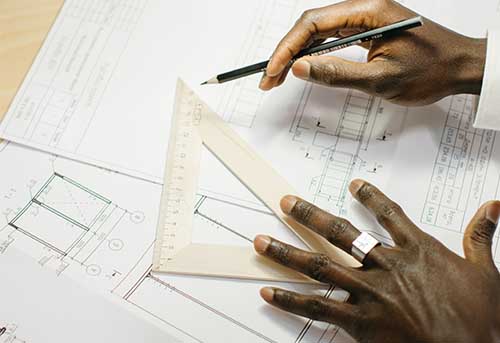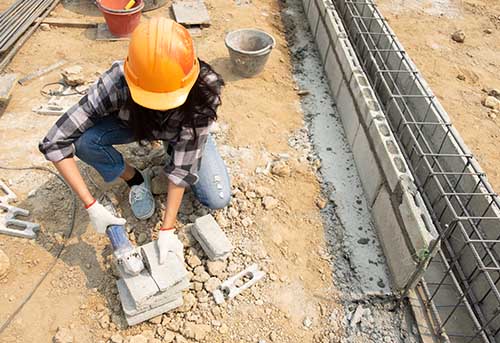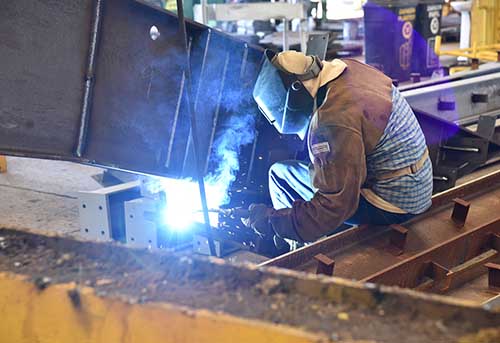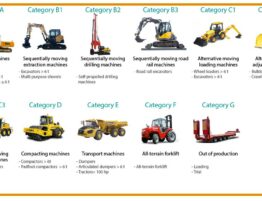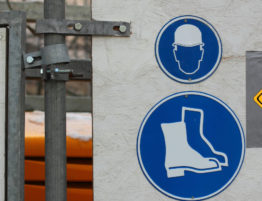
The building sector is an indisputable lever for any society development. It brings together trades that are as varied as they are diverse. From a contract signing to the finishing work, a building construction involves several more or less specialized actors. These craftsmen, technicians, engineers and workers, fascinating because of their skill, continually innovate in a construction field that continues to evolve at the rate of technological innovations. Spotlight on the building trades, often confused and misunderstood, sometimes unknown, but how fascinating!
Building trades related to project development and coordination
When we recall the construction trades, we often think of masonry, carpentry, painting and a few other popular skills. In fact, there are many other specialties that are used upstream of the «construction» phase of a construction project. These much more technical jobs often require a higher level of study. And the skills used make it possible to design, study, evaluate the project and organize the work.
Building engineer
A building engineer is an executive called upon at all steps of a construction project. Sometimes in the office and sometimes in the field, it is he who is in charge of the feasibility studies of the project. He takes note of the specifications and studies the various parameters of the project. He records topographic data, conducts geotechnical studies and analyzes the environmental impact of the project. Then he dimensions the project, determines the technical procedures to be used, draws up plans and figures the costs. He also plans the work and ensures that it is carried out on budget and on time. The building engineer can also be found in the administrative procedures for obtaining authorizations and certificates. In contact with all the trades involved in a construction project, he is the real conductor.
Architect
An architect has technical and artistic skills that allow him to draw the plans of a construction. It takes into account the expectations and the budget of the owner (client), the standards in force as well as the technical constraints to represent the construction on paper. Also, he is called upon to follow the work progress to ensure that they are in accordance with the plans drawn up. But the architect may have to fully manage a project if he is the project manager. This is the reason why he also has managerial and financial skills.
Construction manager
The site manager organizes and supervises the teams in the field. He directs part or all of the work ensuring their proper execution. In collaboration with the team leaders, he distributes the tasks and reviews the work once completed. He has a fast pace of work and is generally a leader of men who knows how to motivate his troops. He works in synergy with the work supervisor who is his hierarchical superior and to whom he reports regularly. He is also delegated certain administrative tasks related to the management of personnel, invoices and purchase orders.
Work supervisor
On a project, the work supervisor is the person in charge of the construction site. He directs all activities on the site. We can say that it represents in the site what the building engineer represents for the project. He coordinates the human, material and financial resources on the site, supervises recruitments and the work and ensures that quality and deadlines are respected. Responsible for purchasing, he also ensures compliance with safety rules on the site. At the same time in relation with the engineers, architects, site managers, customer, suppliers and even the residents of the site, he is a fine technician who has a sense of responsibility and contact. On large construction sites, he works closely with the works director who is his direct supervisor.
Land surveyor
Using precision tools, the professional exercising this trade travels through a field to identify its physical and legal characteristics. Then, the measurements taken are translated into plans and maps. He has a sense of space and nothing escapes his watchful eye. Precise and meticulous, he sets the limits of the construction. He can also perform other functions according to his level of qualification (technician, expert, engineer).
Building technician
Alone or in a team, the building technician develops the construction project technically and financially. He draws up the detailed plans, calculates the costs, defines the quantities of materials and establishes estimates. He also participates in the development of the execution schedule and provides technical solutions as the project evolves.
Business manager
Prospecting the market, managing a portfolio of clients, drafting contracts, supporting clients in carrying out their projects are his main activities. He is the customer’s dedicated contact. He is good at listening and negotiating and liaises with the suppliers and service providers involved in the project. He studies the prices, buys the equipment, follows the evolution of the execution schedule and ensures that the budget is respected.
Building trades related to the work execution
In this category, the building trades encountered are much more manual. They are used for the realization of the shell of a building, as well as development and finishing work.
Builder
It is arguably one of the most well-known trades in the construction industry. It is a pillar trade on a construction site. The builder creates the foundation for the building just after the preparation of the ground. He assembles walls and joists, installs partitions and prefabricated elements, prepares and applies mortar and plaster and lays slabs. His universe is made of bricks, concrete, plaster, resin and many other materials of which he has the secret. And he is in good physical condition, has a sense of balance and layout, and he is very rigorous in terms of safety rules.
Carpenter
We can distinguish the wood carpenter from the metal carpenter depending on the nature of the basic working material. In either case, the carpenter designs and produces the framework serving as a building structure or as a support for building roofs.
Roofer
The roofer intervenes following the carpenter work. He makes the roof of a building while ensuring its waterproofing. The materials used are generally tile, aluminum, slate, glass, etc. he can also provide thermal insulation for roofs and even install solar panels.
House painter
On construction and maintenance-renovation sites, the building painter covers surfaces (walls, facades, ceilings) with coatings in order to protect and decorate them. He is one of the last workers to intervene on a site and must be able to advise the client in the choice of decoration.
Tiler
The tiler is a floor and wall decorator. He covers these surfaces with increasingly varied materials, ranging from earthenware to natural stones, including sandstone or terracotta. Creative, he accompanies the client in his tastes and his lifestyle.
Building electrician
The electrician sets up and secures the entire electrical system of a building according to precise plans. He provides all the electrical connections necessary for the operation of the devices and can even be called upon today for the laying of computer cables and electronic security equipment. He is often seen working closely with the mason.
Joiner
He mainly shapes wood to make and install furniture and fittings (windows, wardrobes, doors, paneling, woodwork, stairs …). Also, he may be called upon to handle glass or aluminum.
Plumber
This building trade consists of installing, maintaining and repairing pipe networks as well as sanitary equipment (showers, bathtubs, toilets, sinks, washbasins, etc.). Also called sanitary installer, the plumber has a few notions in masonry and electricity useful in the accomplishment of his tasks.
Scaffolder
It is an essential profession on a high site. The main task of the scaffolder is to set up the scaffolding, to secure it and to dismantle it once the work is finished.
Welder
The welder can work on site as well as in the workshop. He assembles and welds metal elements to form structures such as frames, gates and other metal products.
Machine operator
Being a construction machine operator consists on a construction site of clearing the ground and carrying out earthworks. These works prepare the ground for construction. The machine operator can be specialized in the operation of a single machine or be versatile. Generally, the construction site cannot begin without him.
Other building trades

The construction sector is very large. It involves many professions more or less known or solicited. Here are some other building trades that a construction site is likely to use:
- Interior architect: designs the interior design of spaces.
- Building draftsman: the architect’s right-hand man, he relays this one in the field.
- Waterproofer: provides waterproofing coatings and provides thermal insulation.
- Crane operator: responsible for driving and operating lifting machine.
- Laborer: versatile and unskilled basic worker.
- Construction machinery mechanic: maintains and repairs construction machinery.
- Quantity surveyor: using readings, he defines the quantities of materials required and assesses the cost of the site.
- Fitter in thermal installations: installs and maintains heating, air conditioning and ventilation systems.
- Glazier: specialist in the installation and repair of glass elements.
- Painter decorator: specialist in wall decorations and imitation dressing, he embellishes rooms.
- Plasterer-drywaller: plaster walls and ceilings with plaster, install thermal insulation.
- Metal locksmith: he shapes locks, keys, hinges but also windows, structural members, stair railings, etc.
- Floor carpet maker: laying flexible floor coverings.
- Stonemason: artist creating architectural forms from blocks of stone.
- Quality technician: controls and certifies the quality of the products manufactured.
- Digger: prepares the land for construction through earthworks by digging trenches or excavations..
Synthesis on building trades
There are still many other trades in the building sector. And the construction industry is constantly evolving (new materials, new architectural techniques, issues of sustainable development), the trades it brings together are not left out of this change. Mostly manual, these professions require as much physical strength and manual skills as technical and managerial skills. And the growing number of young people entering schools in search of professional qualification in building reveals the growing interest aroused by these trades.
At LGU Afrique, we are aware that a qualified building workforce is synonymous with the success of a construction or renovation project. Thus, on the strength of our expertise and the experience of our construction workers and technicians, we provide client companies with a workforce loaning service to boost construction sites. If you are looking for construction workers to carry out your projects, contact our temporary work service or request a quote.